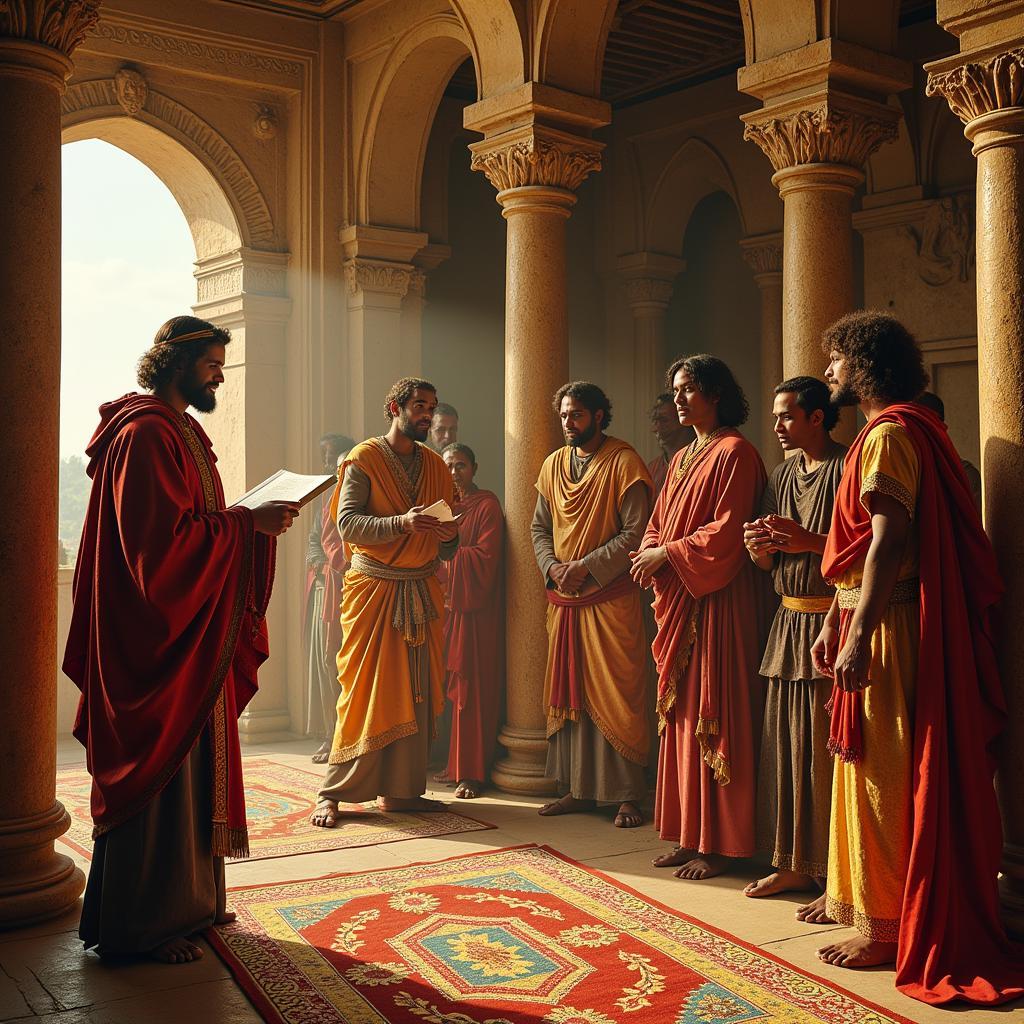Unraveling the History of the African First Christian Missionary
The fascinating history of the African first Christian missionary is often shrouded in misconceptions. Who was this pioneering figure, and what impact did they have on the spread of Christianity across the African continent? This article delves deep into the complexities surrounding this topic, exploring the various perspectives and historical evidence to shed light on this important period.
The Complexity of Identifying the “First” Missionary
Pinpointing the very first Christian missionary to set foot on African soil is a challenging task. Early Christianity spread through various routes, including trade networks and migration, making it difficult to isolate the influence of specific individuals. While some accounts suggest early apostles like Mark the Evangelist played a role in establishing Christian communities in North Africa, concrete evidence remains elusive.
North African Christianity and Its Early Influences
Christianity arrived in North Africa remarkably early, likely within the first century AD. This region became a hub of theological debate and produced influential figures like Tertullian and Augustine of Hippo. However, these early North African Christians were not considered missionaries in the traditional sense, as they were primarily focused on building communities within their own regions.
The Role of Coptic Christianity in Missionary Efforts
The Coptic Orthodox Church of Alexandria, founded in Egypt, played a crucial role in spreading Christianity further south into Africa. While not typically identified as the “African first Christian missionary,” figures like Frumentius, who brought Christianity to the Kingdom of Aksum (present-day Ethiopia and Eritrea) in the 4th century, represent significant missionary activity originating from within Africa.
Frumentius and the Conversion of Aksum
Frumentius’s work in Aksum established a lasting Christian presence in the region. His efforts highlight the complex interplay between internal African developments and external influences in the spread of Christianity.
 Frumentius and the Aksumite Royal Court
Frumentius and the Aksumite Royal Court
Later Missionary Activities and Colonial Influences
Later centuries saw increased missionary activity from Europe, particularly during the colonial era. While these later missionaries undoubtedly impacted the religious landscape of Africa, it’s crucial to differentiate their contributions from the earlier, more organic spread of Christianity within the continent. Understanding this distinction is key to accurately representing the history of the African first Christian missionary.
The Impact of European Missions
The arrival of European missionaries, while often intertwined with colonial agendas, also led to the translation of the Bible into various African languages and the establishment of educational institutions.
Conclusion: A Nuanced Understanding of Early African Christianity
The question of the African first Christian missionary invites us to examine a rich and complex history. While a definitive answer remains elusive, exploring the early influences, the role of Coptic Christianity, and the later impact of European missions provides a more nuanced understanding of the development of Christianity in Africa. Understanding this historical context is essential to appreciate the enduring legacy of faith across the diverse cultures and communities of the continent.
FAQs
- Who is considered the first Christian missionary to Africa? Pinpointing the very first individual is difficult due to limited historical records, but early influences include figures associated with the spread of Christianity in North Africa and the Coptic Church.
- What role did the Coptic Church play in the spread of Christianity in Africa? The Coptic Church, based in Alexandria, Egypt, was instrumental in spreading Christianity south into regions like Aksum (present-day Ethiopia and Eritrea).
- How did early African Christianity differ from the Christianity brought by European missionaries? Early African Christianity developed organically through trade and migration, while European missionary activity was often linked to colonial expansion.
- What are some key figures in the early history of African Christianity? Figures like Frumentius, Tertullian, and Augustine of Hippo represent important figures in the development of early African Christianity.
- What were the long-term impacts of missionary activities in Africa? Missionary activities have had a lasting impact on the religious, cultural, and educational landscape of Africa, shaping its diverse Christian traditions.
- How did early Christian communities in North Africa interact with Roman authorities? Early Christian communities in North Africa faced periods of both tolerance and persecution under Roman rule.
- What are some of the challenges in studying the history of early African Christianity? Limited historical sources and the complex interplay of various influences present challenges in reconstructing a complete picture of early African Christianity.
Need Support?
For any inquiries or assistance, please don’t hesitate to contact us:
Phone: +255768904061
Email: kaka.mag@gmail.com
Address: Mbarali DC Mawindi, Kangaga, Tanzania.
Our customer service team is available 24/7.
You might also be interested in these related articles:
- The History of Coptic Christianity
- The Influence of Christianity in North Africa
- The Impact of European Missions on African Culture
We encourage you to explore further and deepen your understanding of this fascinating topic.

